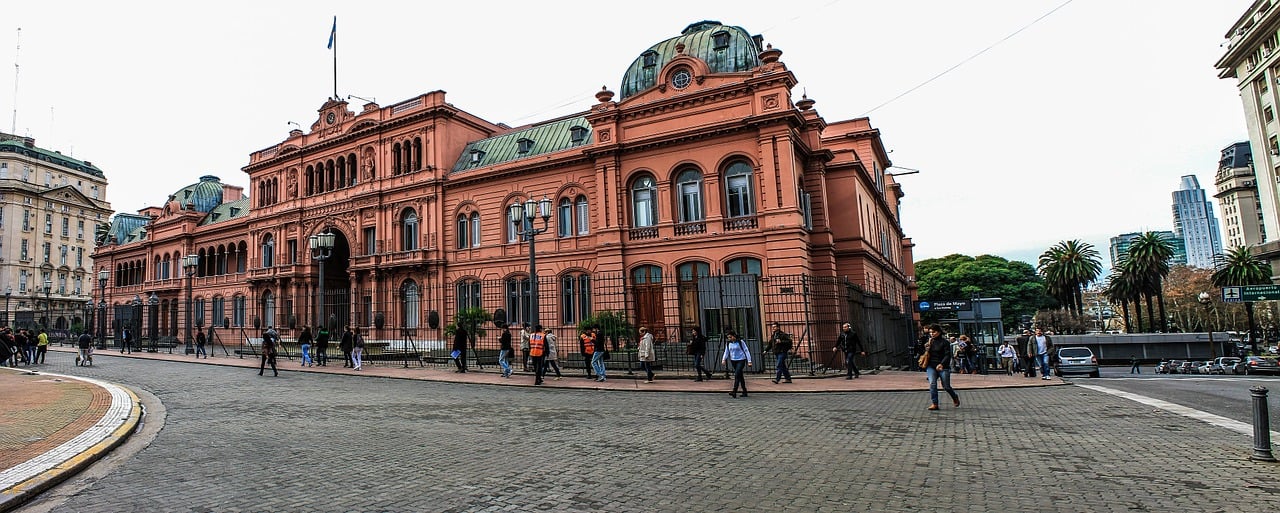Trading opportunities surfacing in Argentina are diverse, with high potential for success. The country’s dramatic geography and fundamental economic sectors support the fourth-largest economy in Latin America.
Business opportunities are prevalent in emerging industries such as renewable energy and technological development. The country’s consistent steps towards offering more attractive investment conditions are bringing in business. Now, Argentina is focusing on boosting its knowledge economy.
Argentina’s trading environment
Argentina is a strong exporter of soybeans, animal feed, cereal, petroleum and gas, motor vehicles and parts. Massive traders with Argentina for these products are China, Brazil, the US and EU. The Latin American powerhouse is a founding member of the Association for Latin American Integration (ALADI), and has a free trade agreement with trade bloc MERCOSUR.
The country’s business prospects are looking up with recent government attempts to draw foreign direct investment (FDI) into the economy. This includes establishing Free Trade Zones, Special Customs Areas, exemptions from tax for certain exports, and investment incentives for SMEs and businesses in the mining industry.
Another such move affects what Argentina calls its ‘knowledge economy,’ encompassing creative industries that with regulatory support, boost the innovative and technological potential of the business environment.
What is the knowledge economy?
The knowledge economy includes activities such as the development and production of software, biotechnology, aerospace and satellite advancements, audiovisual technologies, and geological services and land exploration. Moreover, it covers industries related to electronics and communications, centers for exportation services, investigation and development,
This serves as an entry point into Argentina’s market and brings new skillsets and technological opportunities to its traditional sectors, creating potential for digital transformation and increased global competitiveness.
Law reform
On May 22nd, the National Congress approved Law 27.506 of the Promotion of the Knowledge Economy, also referred to as the Law of Software. The objective of the law is to “promote economic activities that stimulate (1) the knowledge and digitalization of information supported in scientific and technological advances and (2) the acquirement of goods, rendering of services and/or best practices.” In other words, it gives fiscal stability to more than 11,000 businesses and 215,000 direct and indirect jobs.
Benefits of the knowledge economy law
In order to take advantage of the benefits available under this law, those who comply with the established requirements and conditions must register with the “National Register of Beneficiaries of the System of Promotion of the Knowledge Economy.”
The benefits outlined in this regime include:
- Fiscal stability: the beneficiaries will not be able to increase their national tax burden at the time of their application to the regime.
The fiscal stability comprises all national taxes, understanding direct taxes, rates, and tax contributions which have guarantors to inscribed beneficiaries, as related to import and export tariffs or duties, extending to the city of Buenos Aires and Argentinian provinces and municipalities.
- Patron contributions: The beneficiaries of the present regime will benefit from each of their dependent employees, should each be registered with deductible equivalent to at least AR$17,509.
Additionally, the beneficiaries will be able to obtain a one-time credit bonus, equivalent to 1.6 times the amount of patron contributions that correspond with paying the aforementioned sum. This must be deducted from the future payments account.
- Income taxes: The beneficiaries of the present Regime will remain liable for the income tax, with a deduction of fifteen percent (15%), under the condition that they keep the same number of employees that they started with before applying to the Register office.
Moreover, for exporters that have subscribed or have paid taxes similar to the income tax in the destination country, they will be able to deduct the payment from the Income Tax amount.
- Retention and perceptions: The beneficiaries of the present regime will not be acceptable subjects for retention nor withholding taxes at the aggregate value.
Boosting development
The Regime for the Knowledge Economy Promotion will come into effect on 1 January 2020, and will last until 31 December 2029.
The sanction of this law is a step towards promoting the economic development in the country, which in turn encourages competition, the incorporation of global value chains, and full-function capacity of country manufacturing sectors. This in turn offers more facilitative tools and resources for companies and SMEs that have the potential to grow.
Government representatives have said this plan is looking to have a “transversal impact” on the economy, given it increases productivity and creates jobs in all sectors.
The knowledge economy is a global development trend, which from here on out will only continue to grow. Argentina has many advantages for those looking to invest in the country: a growing population, technical and professional capabilities, a strategic global position, developed and specialized human resources departments in various sectors, and above all, company vocation.
Where to from here?
Argentina is securing its economic future in disruptive technology and innovation by boosting its protection and support mechanisms for businesses operating in those creative industries.
Besides monetary incentives, businesses operating on the currency of ideas need to have regulatory support in terms of robust intellectual property (IP) protection. Currently, IP regulations across Latin America are not quite as comprehensive as other developed countries. Argentina would stand to gain from bolstering their regulations to protect patented ideas of its businesspeople. One way to achieve this is to reach out to partners in international fora for cooperation opportunities in this space, and prescribe to international initiatives or standards. Already, Pacific Alliance members Chile Colombia, Mexico and Peru are recognized as having ‘above regional average’ levels of IP protection. Argentina currently has Observer status to this trade bloc. Engaging internationally in this space will demonstrate the country’s willingness to foster a strong, integrity-driven knowledge economy.





